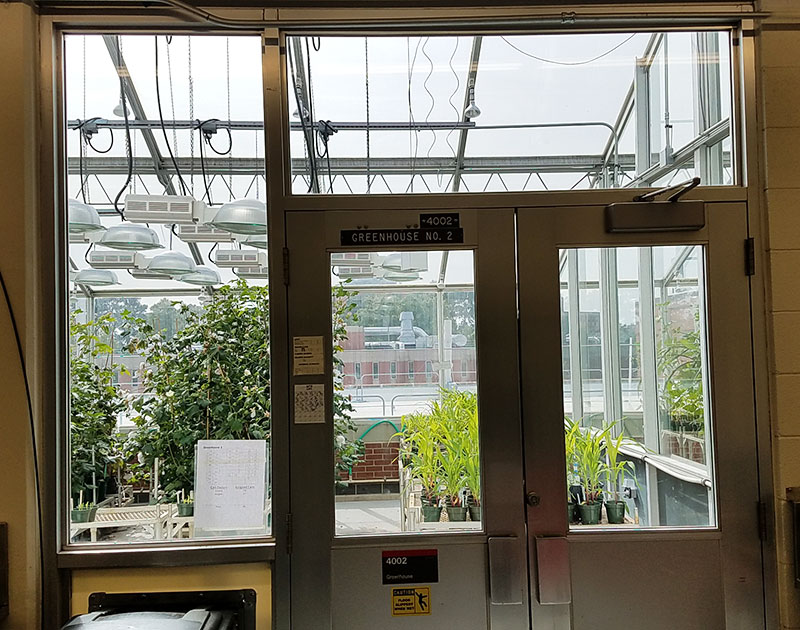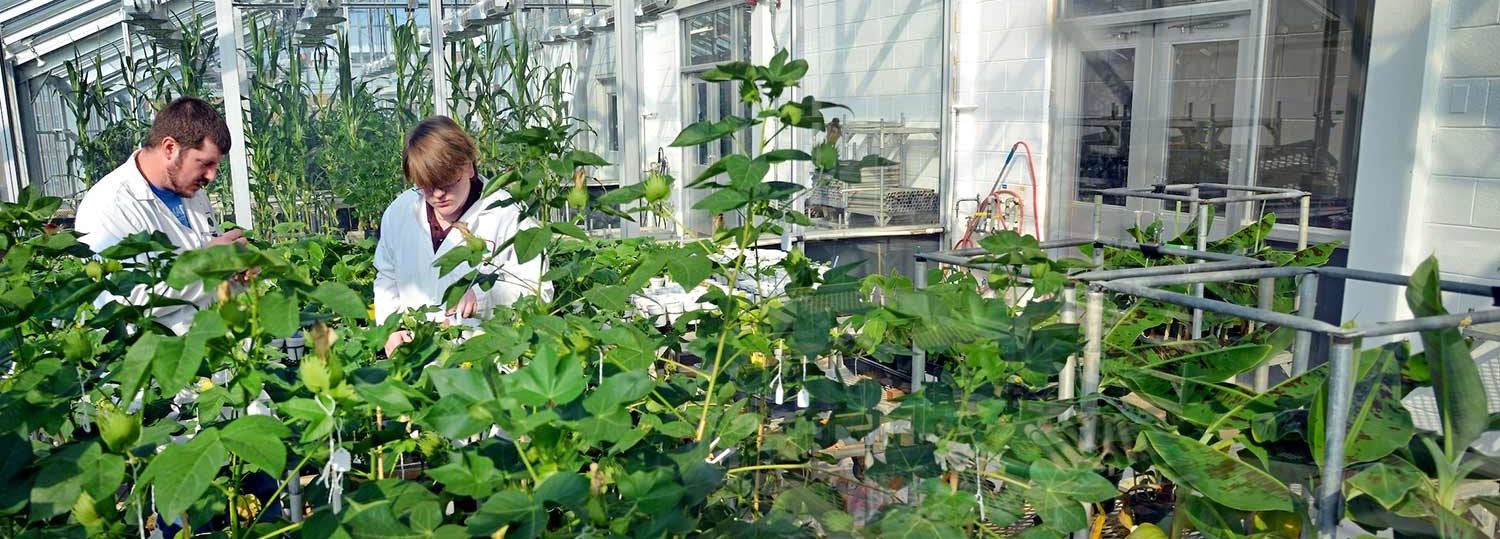Every square foot matters for energy savings – particularly in one of NC State’s most energy intensive research buildings.
Phytotron is a campus facility where researchers can grow plants in various environmental conditions. The facility has 88 energy-intensive growth chambers that can be controlled to mimic many climates and environments.
Recently, NC State’s Energy Management office installed thermal window film on strategic windows in the building in order to reduce solar gain from the facility’s rooftop greenhouses.
The film reflects light back into the greenhouses. This minimizes heat transmission without obstructing views of the plants. Additionally, building occupants report that the film makes a more comfortable work environment with less glare and less overheating on sunny afternoons.
In the area of the building near the greenhouses, the film is expected to reduce energy use for cooling by 10 percent, achieving a return on investment in less than five years.

Phytotron is part of a university energy performance contract, which allows efficiency projects to be financed and paid back with annual energy savings. As a result, the facility’s energy use is continually monitored to maximize return on investment.
Another Phytotron project is underway to limit the heat transfer between the growth chambers and the surrounding workspaces. This will help reduce air conditioning costs and maximize longevity of HVAC equipment.
Opened in 1968 as part of Gardner Hall, Phytotron is used by university researchers, as well as by government scientists or private industries.

